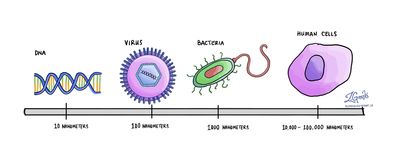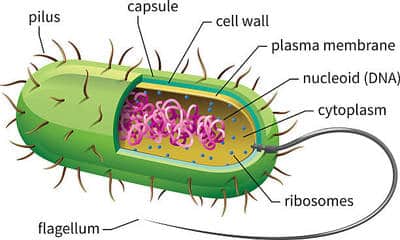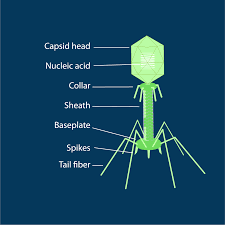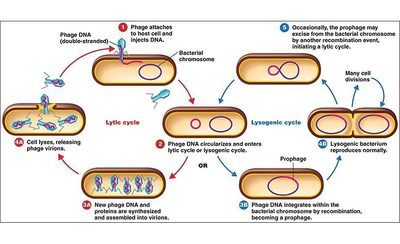Grade Levels: 8th – 12th
Mostly used with 8th and 9th
Subjects: Science, Biology, General Science
1. Watch the clip to answer the next few questions. Are viruses considered to be living? Why or why not?
- Yes, because they are prokaryotic cells.
- No because they don’t have a nucleus.
- Yes, because they have nucleus and other membrane-bound organelles.
- No, because they are not made of cells and they lack the characteristics of life.
2. Are viruses considered to be cells? Would they be included in these Modern Cell Theory statements:
The cell is the smallest living unit in all organisms. All living things are made of cells. All cells come from other pre-existing cells.
- Yes, because viruses are made of cells and all things are made of cells according to the theory.
- Yes, because viruses and cells are the same and the theory says that all cells come from other cells.
- No, because viruses are not made of cells. They are not included in the cell theory because the theory states that the cell is the basic unit of all living things.
- None of this is true.
3. Compare and contrast a virus to a cell. What would be some differences? What are some similarities?
Cells are the basic units of life. Cells can exist by themselves, like bacteria, or as part of a larger organism, like our cells. Viruses are non-living infectious particles, much smaller than a cell, and need a living host to reproduce. The genetic material of the cell is DNA, a double-stranded helix. A virus’s genetic material is either DNA or RNA.
4. True or False:
Viruses can be treated with antibiotics.
- False
- True
Viruses can not be killed. They are non-living. Anti means against. Bio(tic) means life. Therefore ANTI + BIOtic = against life.
5. TRUE or FALSE:
Viruses are smaller than the hosts they infect.
- True
- False
6. Viruses are prokaryotes?
- True
- False
7. Watch the clip to answer the questions that follow.
TRUE OR FALSE:
Virus structure includes biomolecules such as proteins and nucleic acids.
- True
- False
8. Viruses require a host to reproduce?
- True
- False
9. Viruses only target animals (including humans).
- False because viruses are alive.
- False because viruses are bacteria and bacteria don’t target humans.
- False because viruses are animals and animals need other animals to survive.
- False. Anything alive can be infected because viruses have the machinery needed to replicate or make copies of itself.
10. What is a bacteriophage?
- A bacteria that attacks viruses.
- A disease-fighting virus.
- A virus that attacks bacteria.
- A disease-causing bacterium.
11. Watch the video clip and answer the questions that follow.
How many types of reproductive cycles are there?
- 2
- 4
- 6
- 8
12. What are the two viral reproductive cycles called?
- Mitosis and meiosis.
- The prokaryotic and eukaryotic cell cycle.
- The carbon and nitrogen cycle.
- The viral reproductive cycle
- The lytic and lysogenic cycles.
13. How are they lysogenic and lytic cycles different?
The lytic cycle makes copies of its viral genetic material, bursts the cell and then spreads its viral material. In the lysogenic cycle, the viral genetic material is integrated into the host cell’s DNA.
14. TRUE or FALSE:
There is a cure for viruses.
- True. They can be killed with antibiotics.
- False. There are only therapeutic remedies available for viruses.








